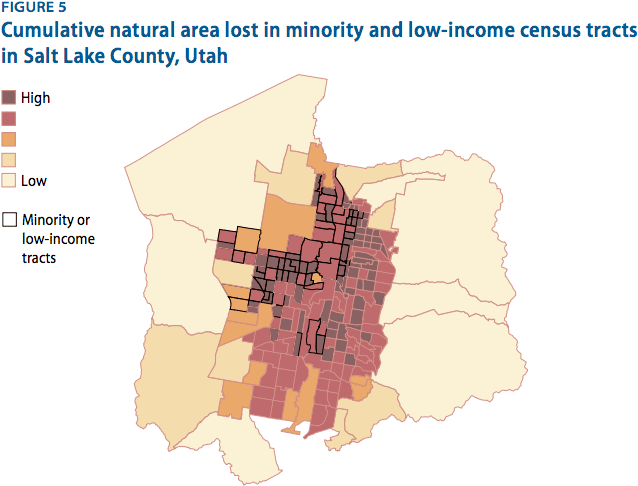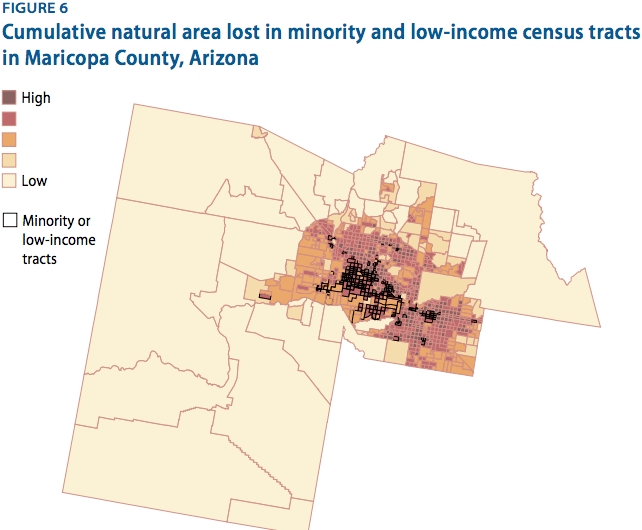A study by the Center for American Progress (CAP) and CSP finds that minority and low-income communities have disproportionately less open space and natural areas nearby as compared to statewide averages.
CSP recently had the opportunity to take another look at data from the Disappearing West project — this time, to investigate environmental justice in minority and low-income areas. This departure from our typical focus on ecology and conservation recognizes that the continued disappearance of natural areas in the West affects humans, too. In addition to data from the Disappearing West project, we used 2007–2011 U.S. Census Bureau data to assess the cumulative amount of natural area lost in minority and low-income areas in several major western metropolitan areas, including Seattle, Salt Lake City, and Phoenix.
The study, which CAP has summarized in its report, Parks for All: Building a More Inclusive System of Parks and Public Lands for the National Park Service’s Centennial, found that the amount of natural area lost to development in the region disproportionately affects communities of color and low-income communities in the West. In these communities, the proportion of remaining natural area is lower than the state average. The report urges that correcting these types of inequities should be a priority when designating new public lands or expanding existing boundaries. It also lays out policy recommendations for achieving this goal over the next 100 years.
To download the report or learn more about this study, click here.
CAP is an independent, nonpartisan policy institute that is dedicated to improving the lives of all Americans, through bold, progressive ideas, as well as strong leadership and concerted action.




